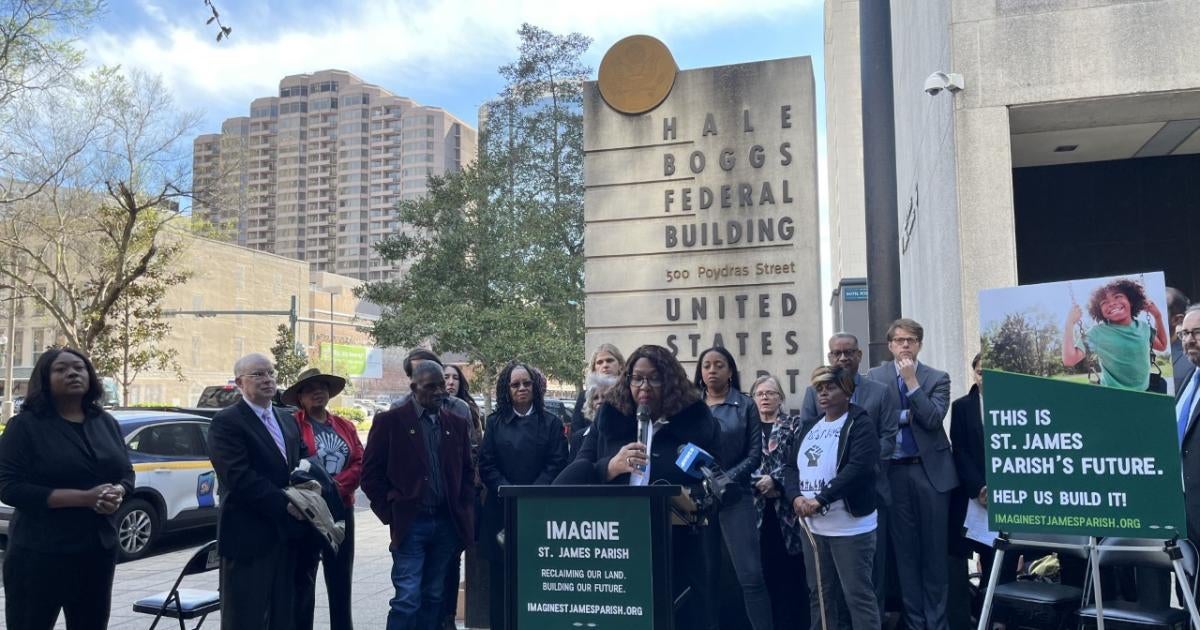In the United States, a landmark lawsuit filed in a federal court in Louisiana on Tuesday by residents of the state’s “Cancer Alley” declares an “environmental and public health emergency.” It calls for an end to any new heavy industry, including fossil fuel, petrochemical plants, and related infrastructure in St. James Parish.
Members of Inclusive Louisiana, Mount Triumph Baptist Church, and RISE St. James brought the action against the local government, citing decades of environmental racism and discriminatory building of industrial facilities in predominantly Black communities in St James Parish. They cite “a legacy of slavery and white supremacy in Louisiana and St. James Parish specifically” that has forced “plaintiffs’ members [to] reside in some of the most polluted, toxic – and lethal – census tracts in the country.”
“Every one of us has had stories about our own health and health of our relatives and friends who have had cancer, respiratory conditions, burning of our eyes and skin conditions, COPD [chronic obstructive pulmonary disease], and chronic coughs. Today it’s time to stop packing our neighborhoods with plants that produce toxic chemicals and pollute our air and water,” said plaintiff Barbara Washington of Inclusive Louisiana at a press conference. “We deserve to live free from pollution.”
More than 200 industrial plants – primarily fossil fuel and petrochemical operations – line an 85-mile stretch along the Mississippi River between New Orleans and Baton Rouge dubbed “Cancer Alley.” Toxic air pollutant releases have resulted in some of the highest cancer risk to residents anywhere in the nation and documented elevated cancer rates.
While no new facilities have been built in the majority white communities in St. James Parish over the last 46 years, new projects continue to be greenlit in the majority Black districts, the suit contends.
“Enough is enough,” said Shamyra Lavigne of Rise St. James.
On Monday, the Intergovernmental Panel on Climate Change, the world’s leading authority on climate science, published a call to action for governments to rapidly phase out fossil fuels, the primary driver of the climate crisis, to scale up renewable energy, and prioritize equity, climate justice, social justice, inclusion, and a just transition.
Myrtle Felton of Inclusive Louisiana announced the groups were launching a campaign to imagine a new economy, “one that isn’t weighed down by pollution, dying industry, and one where everyone has an opportunity and no one needs to suffer.”



